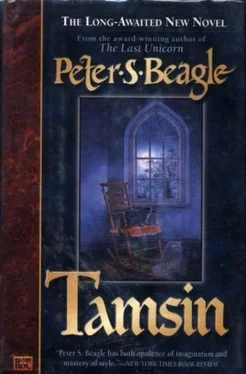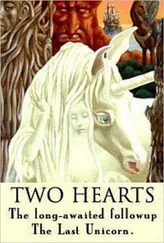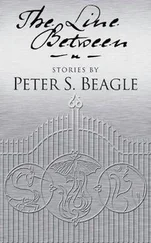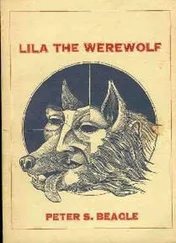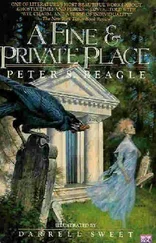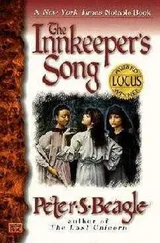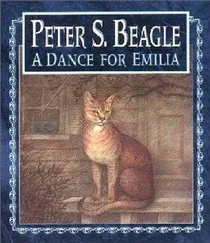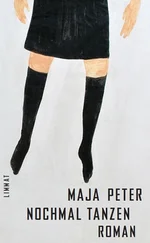Peter Beagle - Tamsin
Здесь есть возможность читать онлайн «Peter Beagle - Tamsin» весь текст электронной книги совершенно бесплатно (целиком полную версию без сокращений). В некоторых случаях можно слушать аудио, скачать через торрент в формате fb2 и присутствует краткое содержание. Год выпуска: 1999, Издательство: ROC, Жанр: Фэнтези, на английском языке. Описание произведения, (предисловие) а так же отзывы посетителей доступны на портале библиотеки ЛибКат.
- Название:Tamsin
- Автор:
- Издательство:ROC
- Жанр:
- Год:1999
- ISBN:нет данных
- Рейтинг книги:3 / 5. Голосов: 1
-
Избранное:Добавить в избранное
- Отзывы:
-
Ваша оценка:
- 60
- 1
- 2
- 3
- 4
- 5
Tamsin: краткое содержание, описание и аннотация
Предлагаем к чтению аннотацию, описание, краткое содержание или предисловие (зависит от того, что написал сам автор книги «Tamsin»). Если вы не нашли необходимую информацию о книге — напишите в комментариях, мы постараемся отыскать её.
Tamsin — читать онлайн бесплатно полную книгу (весь текст) целиком
Ниже представлен текст книги, разбитый по страницам. Система сохранения места последней прочитанной страницы, позволяет с удобством читать онлайн бесплатно книгу «Tamsin», без необходимости каждый раз заново искать на чём Вы остановились. Поставьте закладку, и сможете в любой момент перейти на страницу, на которой закончили чтение.
Интервал:
Закладка:
He didn’t like that. He leaned over me, with his face doing that floppy, melting thing it did before, and the sound that came out of him wasn’t words. My legs turned to string—I can’t think of another way to describe it. I’d have sat down right there, flat on my butt, except that suddenly I was seeing Julian through him, which I hadn’t been able to do a moment before. Then there was only Julian, staring at me out of those impossible gray eyes, saying, “Jenny, you look all funny. Are you all right?”
“Yes,” I said. “Yes, I’m fine.” But I sounded funny even to me.
“Because if you’re not all right, we can practice later,” Julian said. “Jenny, what is it? What’s the matter?”
My baby brother. I didn’t even send away for him. I said, “Julian, knock it off, I’m fine—a goose just walked over my grave or something. Show me what a shooter is again.”
The weather got warmer, Evan’s no-till crops got taller and better looking than he expected. The new corn was taking hold, the new wells were pumping more water than the old ones ever had, and the Lovells seemed happy as clams. Oh—and the “malaria swamp” in the upper meadows finally got drained, probably for the first time ever. Evan’s got pear trees there now.
But there were other things happening, and only Mister Cat and I had the smallest clue about them. (Miss Sophia Brown, too—she must have known everything, for sure.) You can’t have two three-century-old ghosts in the same place without unsettling things, without swinging that door between now and whenever wide open. And what was beginning to come through wasn’t just Dorset night creatures, or more of Mister Cat’s scuttling sparring partners. We were getting an altogether different class of scary now.
The first ones weren’t ghosts—not unless whole scenes, whole landscapes , can be ghosts or have ghosts. I was washing dishes one morning with Sally, the two of us arguing lazily over who played who in some old movie, when Mister Cat was suddenly on my shoulder—digging in—and the kitchen was filling up with hills, for God’s sake. Sally didn’t notice a thing, which was just as well, since she was being crowded at the sink by shadowy oaks that made the Hundred-Acre Wood look like a Christmas-tree farm. Me, whichever way I turned—with Mister Cat permanently welded to the back of my neck—I came up against great chalky slopes and banks of downland, all tilted on their sides, running away into the ceiling. All transparent, of course, gauzy as Meena’s silk scarves, rippling gently when Sally or I walked through them, as though we’d moved in front of a slide projector. No plowed land, no animals, no people. Just the hills.
That was how it started, but it didn’t stay that harmless for very long. Some of the mirages were always ghostly, even flimsier than Tamsin, but others looked so real that I kept jumping aside to keep from tumbling down a slope that some Willoughby had leveled, or from bumping into huge old boulders looming up in the cornfield or the sheep pasture. As long as it happened in the house it was actually funny, especially with me being the only person aware of anything unusual. Once I forgot and warned Tony about the boggy, weedy pond right in the middle of his shiny studio floor; other times, I’d stand blinking in the doorway of the music room without coming in, until Sally got really annoyed at me. But I couldn’t see her because of the stony meadows between us, or the wild woods.
Outside, under an ordinary Dorset sky (generally a sort of windy gray-lilac, spring or no spring)… outside was something else. Outside, half the time I couldn’t be sure where or when I was. I’d come out of the house some mornings and every shed and outbuilding would be gone—everything but the Manor itself. Nothing left but hills this way, a deep green coombe off that way, and maybe a game trail between. Nothing for me to do but stay close to the house until the mirages cleared away, which they always did, sooner or later. It was almost like being Judge Jeffreys, from the other side, with both of us clinging to the Manor as the only truth in a world of fever dreams. Anyway, it’s the closest I ever came to understanding anything about him.
I keep calling them mirages, dreams, shadows , but they were more than that, and I knew it then. Meena knew, too, even though she couldn’t ever see them. “They are visitations,” she told me, “and I think they are perfectly real. Not real here, now, but real in their own time and place, which is still going on somewhere.” She asked me if I understood, and I said maybe you had to be a Hindu. Meena said no, you didn’t, but it would help if I’d read a book by someone named Dunne. I said I hadn’t, and Meena said in that case I’d have to take a Hindu’s word for what was going on. I said please .
“I think what you are seeing is Stourhead Farm before it was Stourhead Farm,” Meena said. “Long, long before Thomas Hardy and William Barnes—long before Roger Willoughby moved down from Bristol. Before the Saxons, before the Romans, before there were farms here, before there were any people at all. Somehow it is all unrolling for you, like running a movie in reverse—”
“Not for me ,” I interrupted her. “It’s him , it’s not me, that’s the whole point. He’s the one making it happen, just by being here.” I told her what the Pooka had said about the wrongness of Tamsin’s lingering on at the Manor and speaking to me, and Meena listened and nodded. “Yes,” she said, “yes, like what most people think about reincarnation. They think, if you’re a bad person you have to return as a snake, a worm, a cockroach, but it doesn’t work like that, it can’t. You don’t go backwards, Hindu or not—the world could unravel . Yes, I see, Jenny.”
“More than I do,” I said. “All I know is that it can’t go on. What happens when people start showing up?” Meena didn’t know. I said, “And I’ll tell you something else—those visitations, or whatever, they’re getting more solid every time. I can still walk through them—but what about when I can’t? Meena, is the seventeenth century coming back for real, for good ? And everywhere, or just here?”
“No,” Meena said. “Absolutely, positively not . Not possible.” She took my hands and held them tightly between hers, and that felt comforting, but what I saw in her face didn’t make me feel any better. She stayed over that night, but she didn’t want to hear anything about the stretch of heathland, ashy-purple with moor-grass and ling, that floated into my room like Mary Poppins while we were lying awake talking about boys. I don’t know whether she fell asleep, but after a while I couldn’t hear her voice anymore. I just lay holding Mister Cat and feeling my bed under me, but looking up at a thousand-year-old sky that couldn’t be there, and smelling rain that had fallen a thousand years ago.
There was a young Lovell, just about my age. I didn’t know about him until it was too late.
His name was Colin. He came down with a bunch of Lovells one afternoon to bug Evan about exporting or something. Colin looked like a string bag of yams, his skin was worse than mine, he whined like a gnat, and he homed in on me like a heat-seeking missile. Julian hacked him with a croquet mallet accidentally on purpose; even Tony came out of his studio to glower silently at him. Tony’s got a glower that blisters paint at fifty yards, but old Colin never noticed. His nose was wide open, as Marta would have said: He followed me wherever I went on the farm, and there wasn’t a thing I could do except be nice to him. It was fun, in a way, feeling like a siren for once, but I could have done without it right then, with the world of Stourhead Farm shifting around me so constantly that just crossing a barley field was like trying to find your seat in a pitch-dark movie theater, where the only light comes from the screen, and faces and scenery go flickering over you until you have to stand still and wait for your eyes to understand and adjust. And with Colin Lovell buzzing after me I never had one instant that whole day to stand still. Which was why we ran slap into Kirke’s Lambs.
Читать дальшеИнтервал:
Закладка:
Похожие книги на «Tamsin»
Представляем Вашему вниманию похожие книги на «Tamsin» списком для выбора. Мы отобрали схожую по названию и смыслу литературу в надежде предоставить читателям больше вариантов отыскать новые, интересные, ещё непрочитанные произведения.
Обсуждение, отзывы о книге «Tamsin» и просто собственные мнения читателей. Оставьте ваши комментарии, напишите, что Вы думаете о произведении, его смысле или главных героях. Укажите что конкретно понравилось, а что нет, и почему Вы так считаете.
